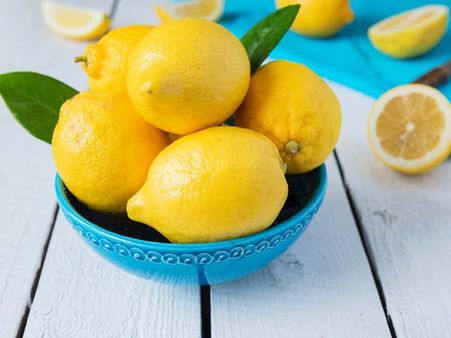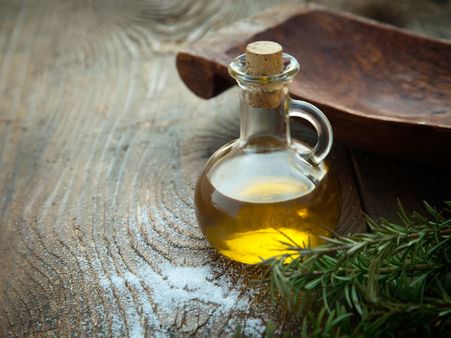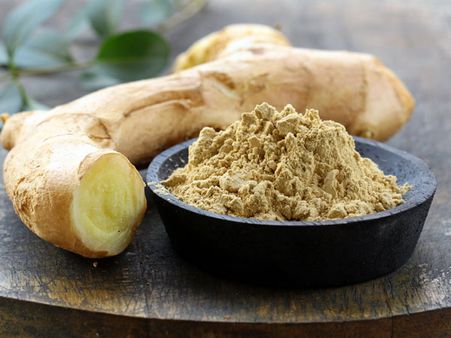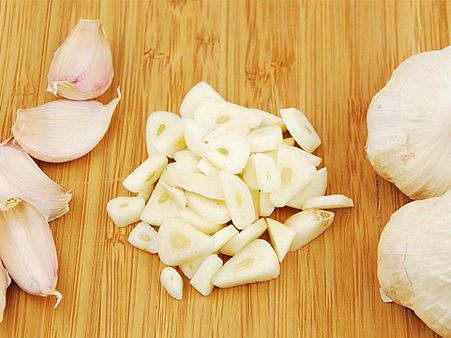Just In
- 1 hr ago

- 3 hrs ago

- 5 hrs ago

- 16 hrs ago

Don't Miss
- Sports
 Chamari Athapaththu unbeaten 195 helps Sri Lanka record highest run-chase in women's ODI cricket
Chamari Athapaththu unbeaten 195 helps Sri Lanka record highest run-chase in women's ODI cricket - News
 Indonesia's Volcano Eruption Triggers Tsunami Alert, Thousands Told To Leave
Indonesia's Volcano Eruption Triggers Tsunami Alert, Thousands Told To Leave - Technology
 Garena Free Fire Max Redeem Codes for April 18, 2024: Get Access to the Latest In-game Loot
Garena Free Fire Max Redeem Codes for April 18, 2024: Get Access to the Latest In-game Loot - Movies
 BIG Hollywood OTT Release This Week: The Circle To Dream Scenario, Watch These On Netflix, Amazon Prime & More
BIG Hollywood OTT Release This Week: The Circle To Dream Scenario, Watch These On Netflix, Amazon Prime & More - Finance
 Tesla CEO Elon Musk To Announce $2-$3 Billion Investment Plan For Entry In India; Reports
Tesla CEO Elon Musk To Announce $2-$3 Billion Investment Plan For Entry In India; Reports - Automobiles
 The Role Of Materials And Engineering In Helmet Safety
The Role Of Materials And Engineering In Helmet Safety - Education
 SCCL Recruitment 2024; Application process, Selection criteria and more
SCCL Recruitment 2024; Application process, Selection criteria and more - Travel
 From Coconut Breaking on Head to Men Dressing as Women: 12 Unique Indian Rituals Explored
From Coconut Breaking on Head to Men Dressing as Women: 12 Unique Indian Rituals Explored
Effective Home Remedies To Restore The Sense Of Smell And Taste
The proper functioning of the sense of smell and taste is as important as the functioning of other body parts. They work together and help us in various survival factors such as eating, mating and sensing dangers. Disorders in the sense of smell and taste can affect the quality of life.

There are many reasons for the loss of smell and taste. They include allergies, upper respiratory problems, medications, nasal polyps, dental problems, degenerative diseases, ageing, trauma, chemotherapy and these days, COVID-19. [1]
The aforementioned causes temporarily hamper the olfactory (sense of smell) and gustatory (sense of taste) stimuli but the senses usually return to normal within a few days or weeks when the underlying cause is treated or managed. [2]
Surgical and application of corticosteroids are proven treatment methods for smell and taste disorders. However, natural ways are always the best as they come with zero or minimal side effects.
In this article, we will discuss effective ways to treat the loss of smell and taste at home.


1. Lemons
Flavorants such as citric acid in lemons is very effective in evoking and enhancing the flavour of sour and sweet and bringing back the lost sense of smell and taste. They help activate the olfactory and gustatory receptors and play a vital role in senses perception. [3]
What to do: Cut a lemon into two halves and inhale for a few minutes daily in the morning and evening. You can also prepare lemon juice by mixing lemon and honey in a glass of water.

2. Castor oil
Castor oil is one of the best home remedies to treat loss of smell and taste due to its antioxidant, anti-inflammatory and antimicrobial properties. If your sense of smell and taste is lost due to flu or cold, castor oil helps fight inflammation and thus, reduce the symptoms to a great extent.
What to do: Put one drop of warmed castor oil in both the nostrils in the morning and before going to bed. This may help clear the nostrils.


3. Chamomile tea
Chamomile is an ancient medicinal herb with many health benefits, including its effective role in treating fever, inflammation and infections. Drinking chamomile tea helps alleviate inflammation of the respiratory tract that may have caused a loss of sense and taste. [4]
What to do: Prepare chamomile tea by adding dried chamomile petals in boiling water and letting the mixture steep for a few minutes.

4. Steam
Steam therapy is used since the oldest of times and can easily be availed at home. It helps reduce the inflammation and congestion of the nasal passage and bring back the lost sense of smell and taste.
What to do: Bring water to a boil, cover your head with a thick cloth and allow the steam to enter your nostrils. Do it for around 10-15 minutes, twice a day until the symptoms persist.


5. Ginger
A study talks about the antiviral activity of ginger against influenza viruses that cause common flu and bird flu. The active compounds in ginger may help treat these conditions which are associated with loss of sense and smell. [5]
What to do: Chew a small piece of ginger or prepare a ginger tea and consume.

6. Lavender
Olfactory stimulation through inhalation of fragrance is a very effective procedure. According to a study, the odour of lavender tends to increase brain waves, which in turn, may help restore back the lost sense of smell and taste. [6]
What to do: Pour a few drops of lavender oil in boiling water and inhale. You can do it similar to steam inhalation.

7. Apple cider vinegar
Apple cider vinegar is known to treat nasal infection, nasal congestion and sinus which may have led to the loss of smell and taste. This is due to the anti-inflammatory and antimicrobial activities of apple cider vinegar.
What to do: Add a teaspoon of apple cider vinegar in a glass of warm water, stir it well and have twice a day. You can also add honey for a better taste.

8. Garlic
The antimicrobial properties of garlic may help decongest the nasal passage and bring back the sense of smell and taste. Also, the ricinoleic acid in garlic exhibits anti-inflammatory properties which may help ease breathing problems due to blocked by reducing the inflammation. [7]
What to do: Take 2-3 cloves of garlic, boil them, strain the mixture and then drink the water twice a day for quick relief. You can also add a pinch of salt for a better taste.

9. Cardamom
Cardamom is one of the widely known home remedies to treat olfactory and gustatory disorders. The peculiar aroma of cardamom helps open up the nasal congestion and bring back the sense of smell and taste.
What to do: You can consume cardamom directly by mouth or prepare a cardamom tea and consume.

10. Peppermint
Peppermint is a medicinal herb used to treat symptoms of cold and flu which are associated with the suppression of sense of smell and taste. They help reduce the inflammation of the nasal chambers and clear the congestion. [8]
What to do: Peppermint can be used in two ways to treat loss of smell and taste. Firstly, boil its leaves and prepare a tea and sip at least 2-3 times a day for better results. Secondly, add a few drops of peppermint oil to boiling water and inhale the steam to relieve from nasal congestion.

11. Coconut oil
Coconut oil can be used in oil pulling methods to treat sore throat and other lung problems which might have caused the loss of taste and smell. The oil helps reverse allergic lung infections and inflammation of the trachea. [9]
What to do: Swirl coconut oil in the mouth for around 5-10 minutes, spit and brush. Do this process only once a day, preferably in the morning.

12. Stay hydrated
Staying hydrated is the easiest way to prevent the loss of smell and taste or to manage it. Water helps prevent dry mouth and colonisation of bacteria which may lead to other dental problems.
What to do: Drink a glass of water every hour.

Other Healthy Tips
- Consume enough vitamin-rich foods such as milk and seafood as their deficiencies are also linked to the loss of sense of smell and taste.
- Consume foods like chicken and fish as they may help enhance the taste.
- Foods packed with zinc such as whole grains and nuts are also beneficial.
- Brush and floss daily to maintain good oral hygiene.
- Go for regular checkups as some underlying conditions like Alzheimer's can also be the cause of olfactory and gustatory disorders.
- Make ways to prevent yourself from getting cold and flu.
- Quit smoking
- Add flavoursome herbs such as oregano or cayenne pepper to enhance the taste and smell senses.
- Avoid eating very hot foods
- Avoid processed foods as they are too sugary and salty and consuming them often may lead you to a habit of eating foods with too much sugar or salt.
-
 beauty5 Best Natural Perfumes For Women To Feel Feminine And Divine
beauty5 Best Natural Perfumes For Women To Feel Feminine And Divine -
 healthFresh And Confident, All Day Long! How To Make Your Sweat Smell Better?
healthFresh And Confident, All Day Long! How To Make Your Sweat Smell Better? -
 healthSay Goodbye To Sweat Smell: 5 Aromatic Spices For Natural Freshness
healthSay Goodbye To Sweat Smell: 5 Aromatic Spices For Natural Freshness -
 healthFrom Headaches To Nausea: How Peppermint Oil Scent Can Help
healthFrom Headaches To Nausea: How Peppermint Oil Scent Can Help -
 body careShower Hacks To Make Your Fragrance Last All Day Long
body careShower Hacks To Make Your Fragrance Last All Day Long -
 pulseWhat Do Indian Cities Smell Like?
pulseWhat Do Indian Cities Smell Like? -
 skin careHow To Smell Good All Day, Every Day (With And Without Perfume)
skin careHow To Smell Good All Day, Every Day (With And Without Perfume) -
 wellnessAutistic Pride Day (18 June): Dietary And Sensory Tips To Care For Children With Autism
wellnessAutistic Pride Day (18 June): Dietary And Sensory Tips To Care For Children With Autism -
 wellnessIs Loss Of Smell And Taste A Symptom Of COVID-19? Here’s What You Need To Know
wellnessIs Loss Of Smell And Taste A Symptom Of COVID-19? Here’s What You Need To Know -
 disorders cureHyposmia: Causes, Diagnosis And Treatment
disorders cureHyposmia: Causes, Diagnosis And Treatment -
 disorders cureSynesthesia: Types, Causes, Symptoms, Diagnosis And Treatment
disorders cureSynesthesia: Types, Causes, Symptoms, Diagnosis And Treatment -
 pet careHow To Keep A Dog From Smelling In Between Baths
pet careHow To Keep A Dog From Smelling In Between Baths


 Click it and Unblock the Notifications
Click it and Unblock the Notifications








